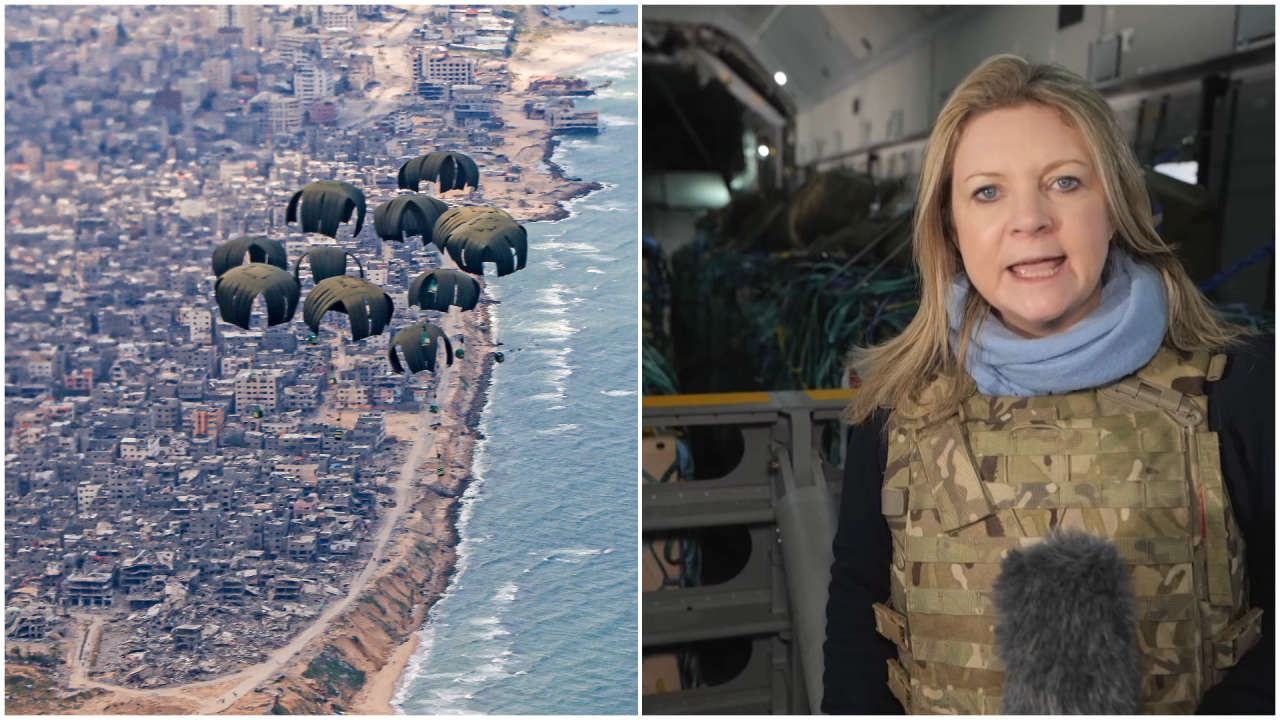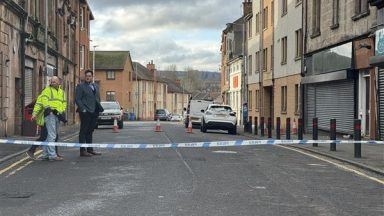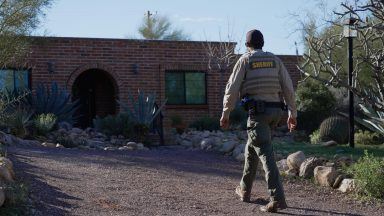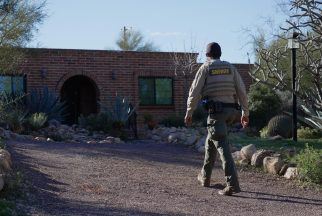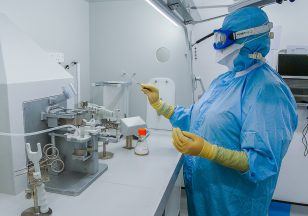ITV News correspondent Emma Murphy and cameraman Mark Jervis report from the first British plane to parachute aid into Gaza
For the first time since the start of the war, a British RAF plane has taken part in an aid drop into Gaza, taking tonnes of desperately-needed supplies to those struggling to live through war and hunger.
ITV News was on board this flight and watched as British and Jordanian aid was parachuted down along the territory’s northern coastline on Monday.
Water, rice, cooking oil, flour, tinned food and baby formula, were among the goods delivered via an A400M plane with a strategic airlift platform that was flown from Amman, Jordan.
Since Hamas launched a surprise attack into southern Israel on October 7 last year, the country has launched a huge military offensive on Gaza.
ITV News correspondent Emma Murphy describes what she saw on ITV’s Good Morning Britain
It has left the population of the strip of land facing a dire humanitarian emergency, with almost half of the territory’s 2.3 million people on the brink of starvation.
On board the A400 plane, we knew we were close to Gaza when the crew began putting on helmets and armour even though the buildings below still appeared to be intact.
For those trying to survive this war, which has done such harm, a man-made disaster is unfolding with food being used as a weapon of that war.
As we flew along Gaza’s beachfront – low and slow – those who so desperately need the aid spotted the plane and began running in the same direction.
They have seen enough of these drops now to know what falls to the ground disappears within minutes.
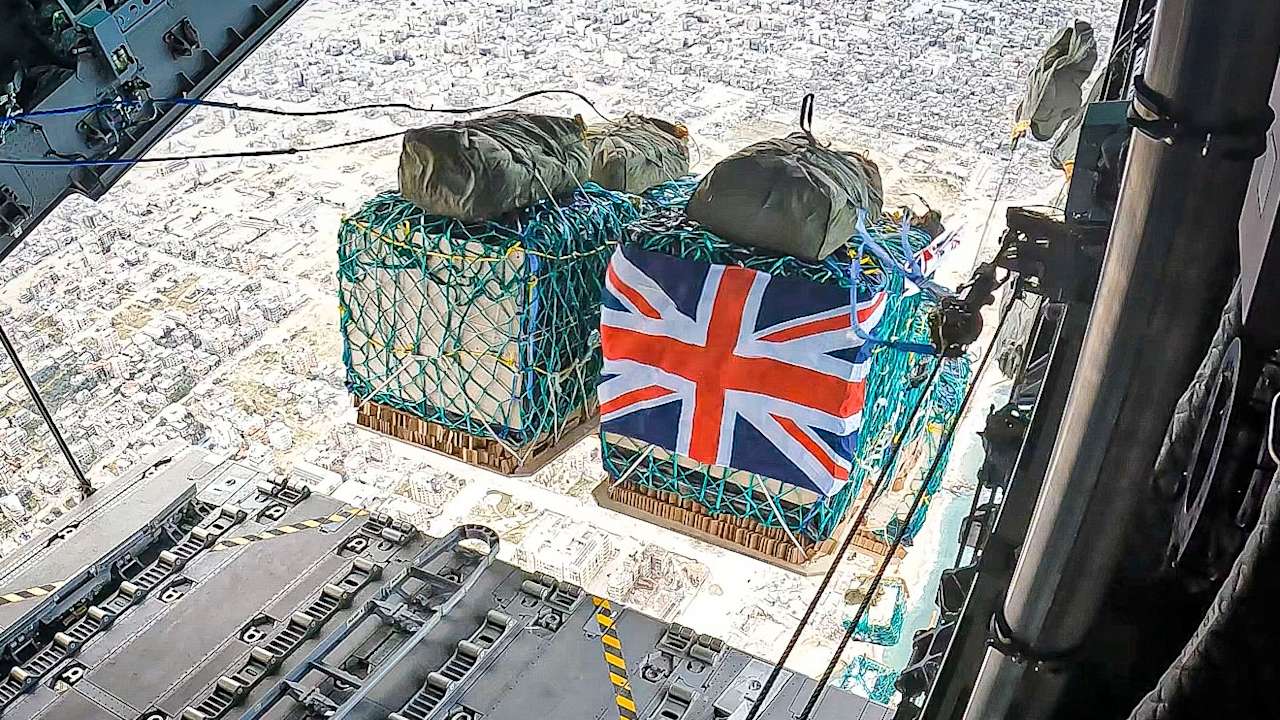
This was the first time a British plane has taken part in one of the Gaza airdrops.
It’s taken weeks of work by 47 Air Despatch Squadron and 30 Squadron to get to this point.
Their pride and belief in the importance of their work was evident. They have all seen the images emerging from Gaza over the past months.
When the off ramp opened, Gaza stretched out beneath us. On the flight deck, they assessed the drop zone, determined to avoid their aid causing casualties on the ground.
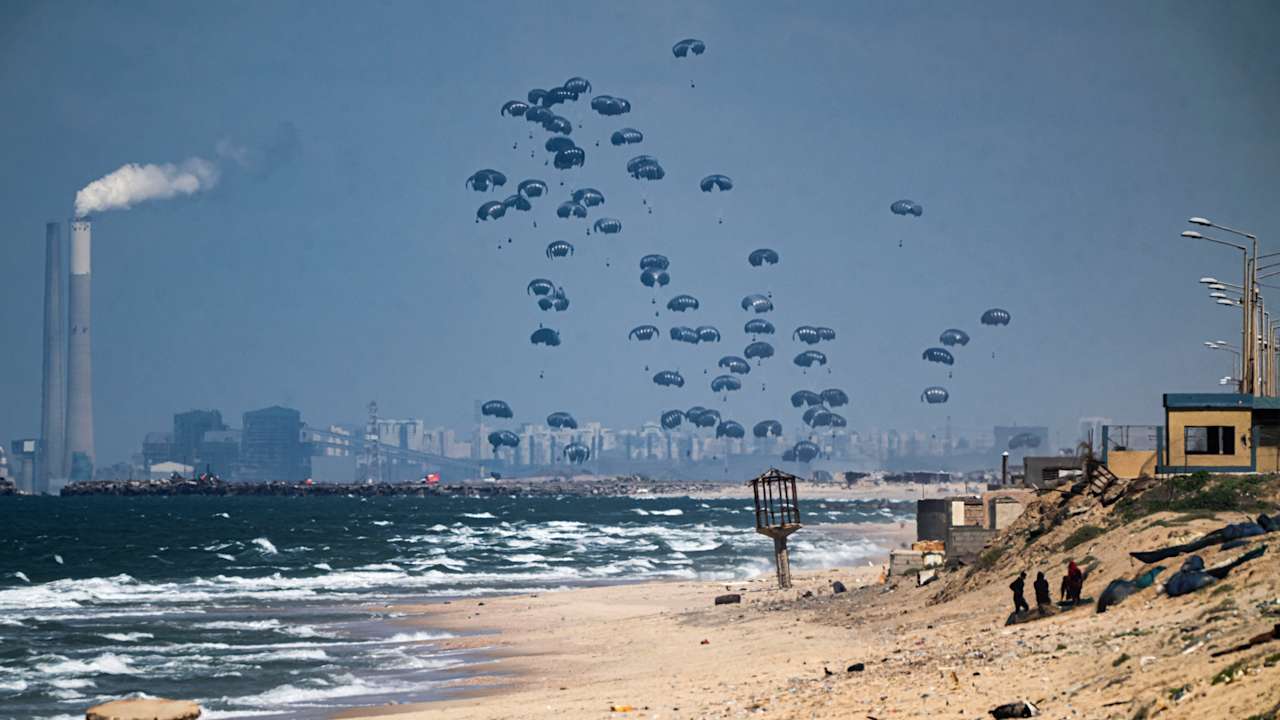
With a small amount of clear land, the drop was called and the pallets plunged out, bobbing down beneath huge black canopies.
It took seconds for them to disappear. It won’t have taken much longer for them to be gathered up on the ground.
This time, help and not harm was coming from a blue sky.
Aid-drops are not the most efficient way to get lifesaving supplies to those in need.
They are usually reserved for remote crises or to help those trapped behind enemy lines. The war in Gaza is neither.
That aid is coming from the air is a result of Israeli restrictions on what can go in by road – restrictions that are now so draconian a population is on the verge of famine while just beyond its borders there is a plentiful supply waiting to reach them.
An international outcry has done little to ease the crisis and so the sky above Gaza is busy with flights dropping what they can. British forces are now part of that.
Monday’s airdrop is part of ongoing UK efforts to give aid to the people of Gaza and follows recent land deliveries of 2,000 tonnes of UK food aid to feed more than 275,000 people.
The UK has also given thousands of UK-funded blankets, tents and other relief items, as well as the establishment of a full UK-funded field hospital in Gaza run by British charity UK-Med.
The airdrops are part of an international attempts to work around extreme difficulties in getting aid into Gaza after trucks have been stalled by political and security concerns.
However this method of delivery, which have been previously been led by the US, provide far less aid than truck deliveries that have become rare and sometimes dangerous.
However dropping aid from the sky is not risk free — a recent delivery killed five people when a package’s parachute failed to engage.
Follow STV News on WhatsApp
Scan the QR code on your mobile device for all the latest news from around the country


